


A natural solution to ballast






Bawat, a Danish ballast water management innovator, offers a sustainable solution to ballast water that does not involve UV lighting or electro-chlorination. “There are no challenging waters, only ballast water management systems challenged by different types of waters. Our system works wherever and whenever - in all waters,” declared CCO Jakob Olsson. Report by Andy Probert.
There are less than 18 months to an International Maritime Organisation compliance deadline for vessels to live up to discharge criteria with ballast water treatment systems. These processes combat the spread of deadly pathogens and invasive species in the form of algae and plankton (Phyto and Zoo plankton). Ship owners and operators are now feeling the heat on making the right choice for their fleets.
Bawat, a Danish solutions firm, has created a unique, filter-less, single-pass pasteurisation system to kill biological pathogens in ballast water making it a cleaner, greener, non-chemical and more effective innovation for any water

type compared to those that use UV light or electro-chlorination (EC), the most pop ular systems on the market today.
“The discussion in the ballast water management industry is very much about ‘challenging waters’ – that relates to how effective a system is in different types of water,” explained CCO Jakob Olsson. “A system with a UV light cannot work efficiently if the water is highly turbid.
“Similarly, an EC system needs salt to make its process work. Luckily, in oceans, you have saltwater, but come to rivers which are fresh or brackish water, there’s a problem. The chemical process is compromised, and you need a brine tank to add salty water to


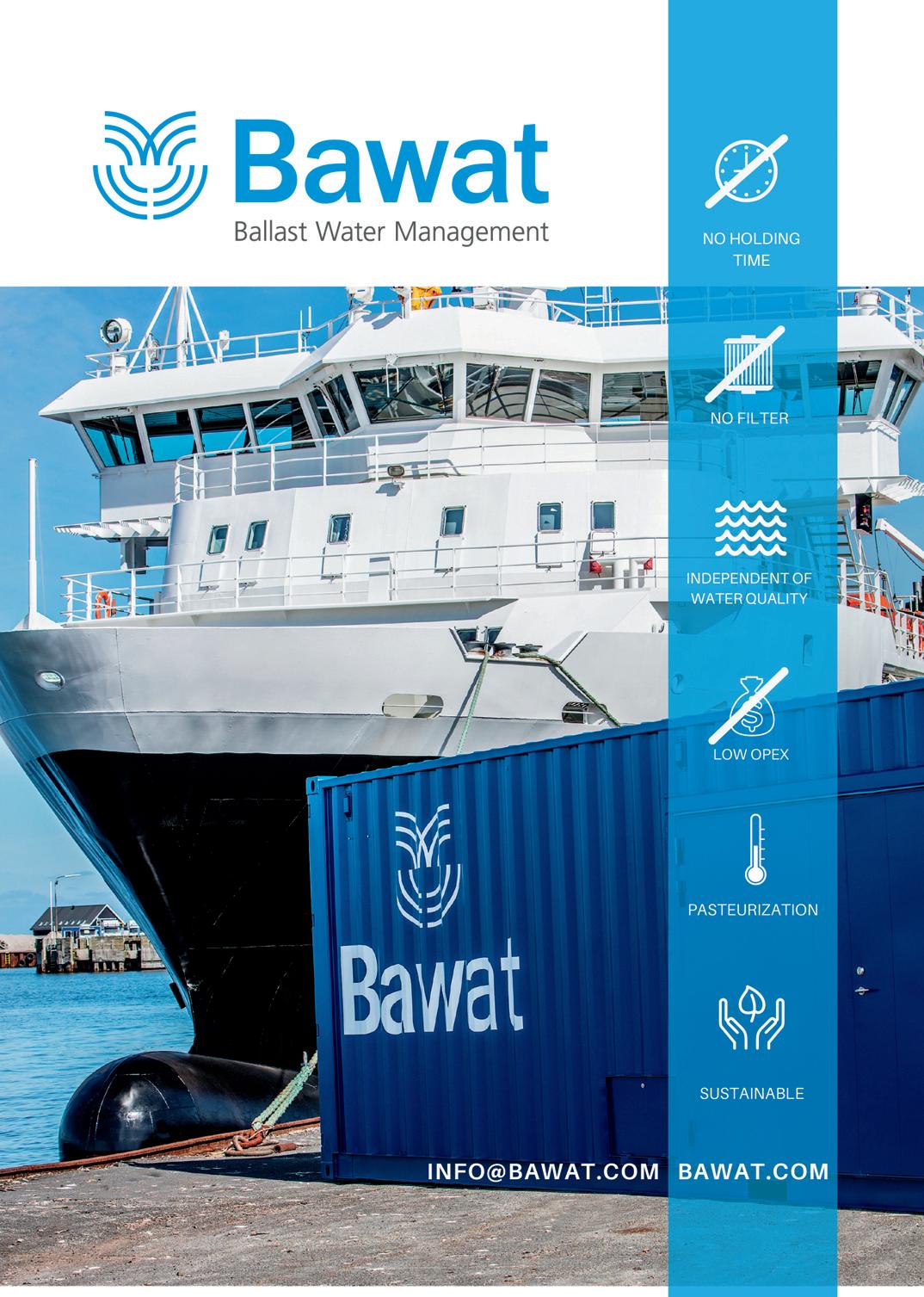
make it work. Low water temperatures are also a challenge for EC systems.”
Many of these require a double pass through the system for full compliance. This increases complexity, and the zoo-plankton filters often used can be challenging to operate in port-based sea environments.
“The point here is that when you do pasteurisation, there is no such thing as challenging waters,” Mr Olsson explained. “When you heat water and kill species, it does not matter whether the water is turbid, brackish, fresh, salty, cold or hot.
If anything, it’s the ballast water systems that are challenged by these different water types.”
Bawat’s pasteurisation system was initially met with scepticism. By 2020, the innovation was among the first to be approved under the newly-toughened mandatory requirements of the IMO’s Code for Approval of Ballast Water Management Systems.
At the heart of a Bawat system is the pasteurising unit where ballast water is heated to a specific temperature, which along with a retention time ensures the
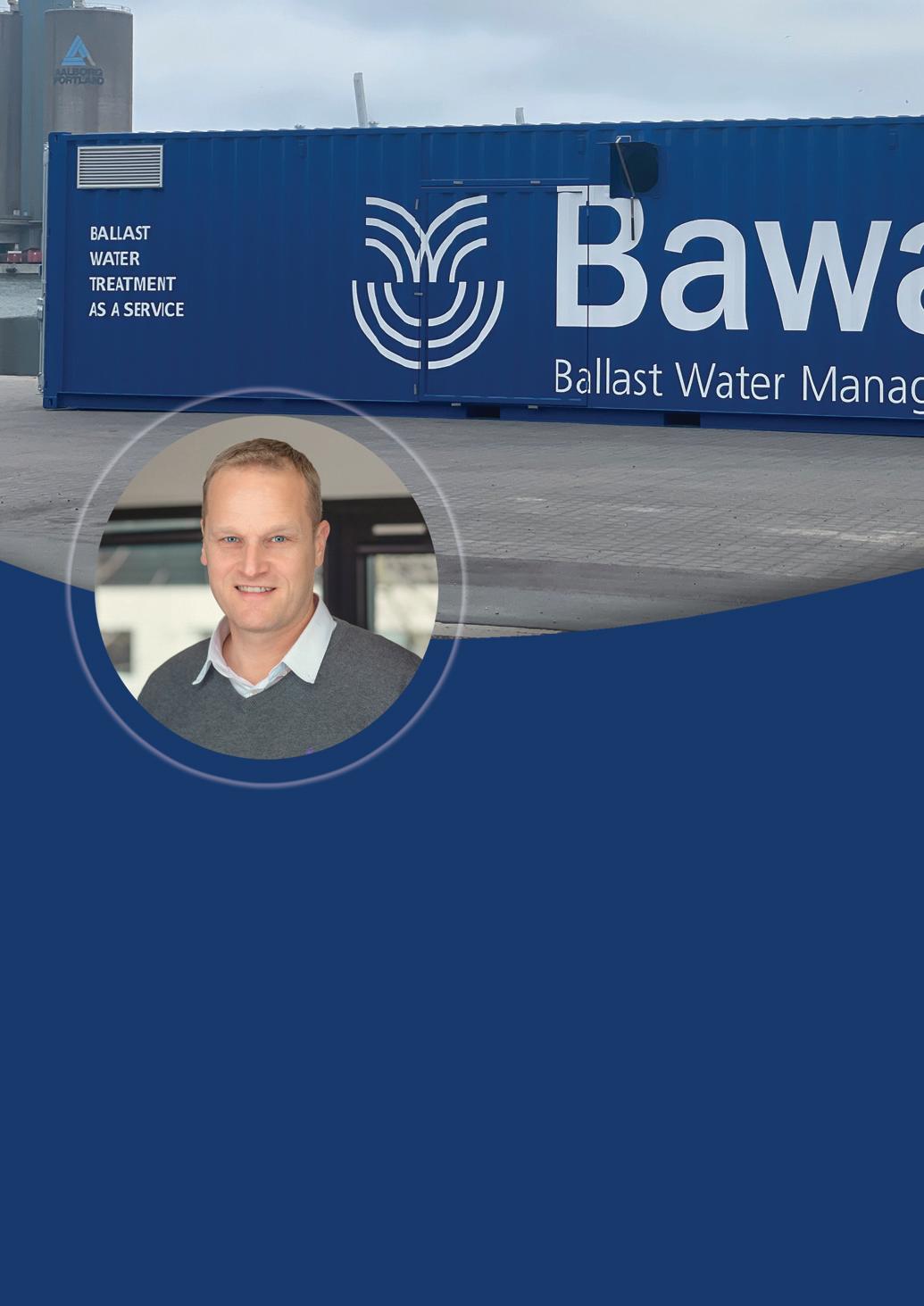
efficient elimination of all living organisms. Easy to install and simple to operate, the net-zero energy-consuming system is built from standard components found on board vessels and familiar to crews. Within the unit’s regeneration section, the already treated ballast water pre-heats the incoming water resulting in low power requirements and high energy efficiency. The system comes with zero operating costs when utilising waste heat from the vessel. The system is also US Coast Guard-approved.
“As one of the most sustainable treatment systems on the market, it gives customers confidence that Bawat has a product for their future needs,” Mr Olsson said.
“We are like a small Chihuahua barking up at the big competitive German Shepherds of the market,” Mr Olsson commented ruefully. “But our aim is that small will win out.”
Bawat now has three legs to the business: its permanent system on board vessels, a mobile offshore and barge option as well as providing ballast water as a service (BaaS) in which a mobile unit is operated on land or on a vessel in a port by a contractor.
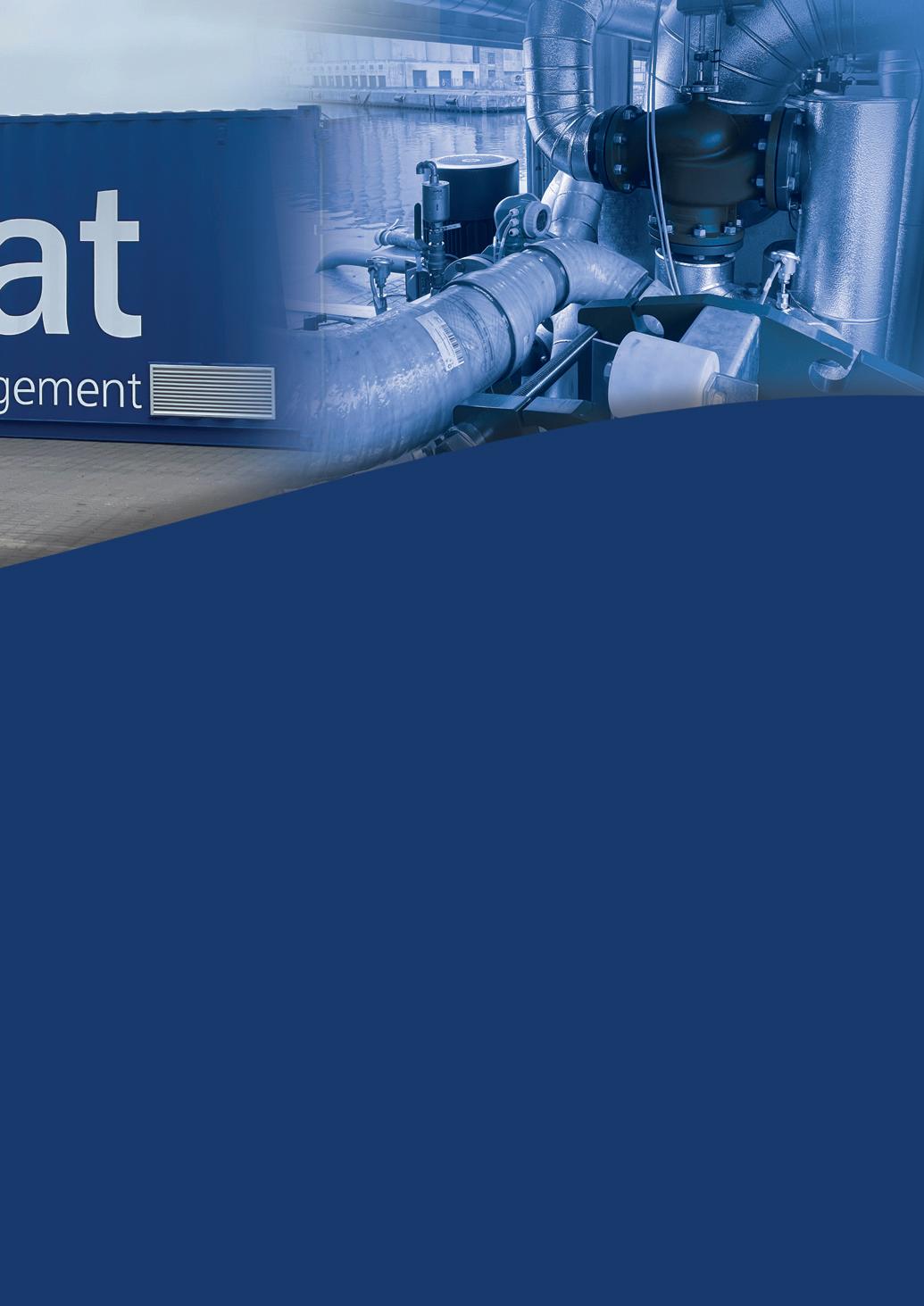
“We faced challenging times across 2020 due to lockdown and the inability to meet customers face-to-face,” continued Mr Olsson. “But we have expanded, and several vessels in Europe, Asia and North America have a Bawat system onboard, with many more coming in the pipeline, including our first bitumen carrier and cruise vessel.
“The system can be fitted to most vessel types. Our ideal target vessel has the right amount of heat available compared to the amount of ballast water they need to treat.
If you look at our competitors’ systems, these come at an operational cost, both
for UV bulbs, chemicals, filter elements and maintenance: whereas ours is completely OpEx-free, designed with marine components.”
With a staff of 20 in Copenhagen and a comprehensive global agent network, Bawat expects a significant growth in 2023 compared to previous years. “Activity on the commercial side of the business is high, and the increase in quoting activities across all three business legs in Bawat are at an all-time high,” said Mr Olsson.
This was further boosted when its partner Freedom Ballast executed the first US port third-party BaaS service in 2022. Using a mobile, containerised system from Bawat, the job was per formed for a customer in Louisiana for multiple vessels.
“With Freedom Ballast, we expect to place more hardware and facilities across the US in the coming years to service an increasing demand for planned and contingency ballast water treatment jobs,” explained Mr Olsson. “As enforcement gets tighter
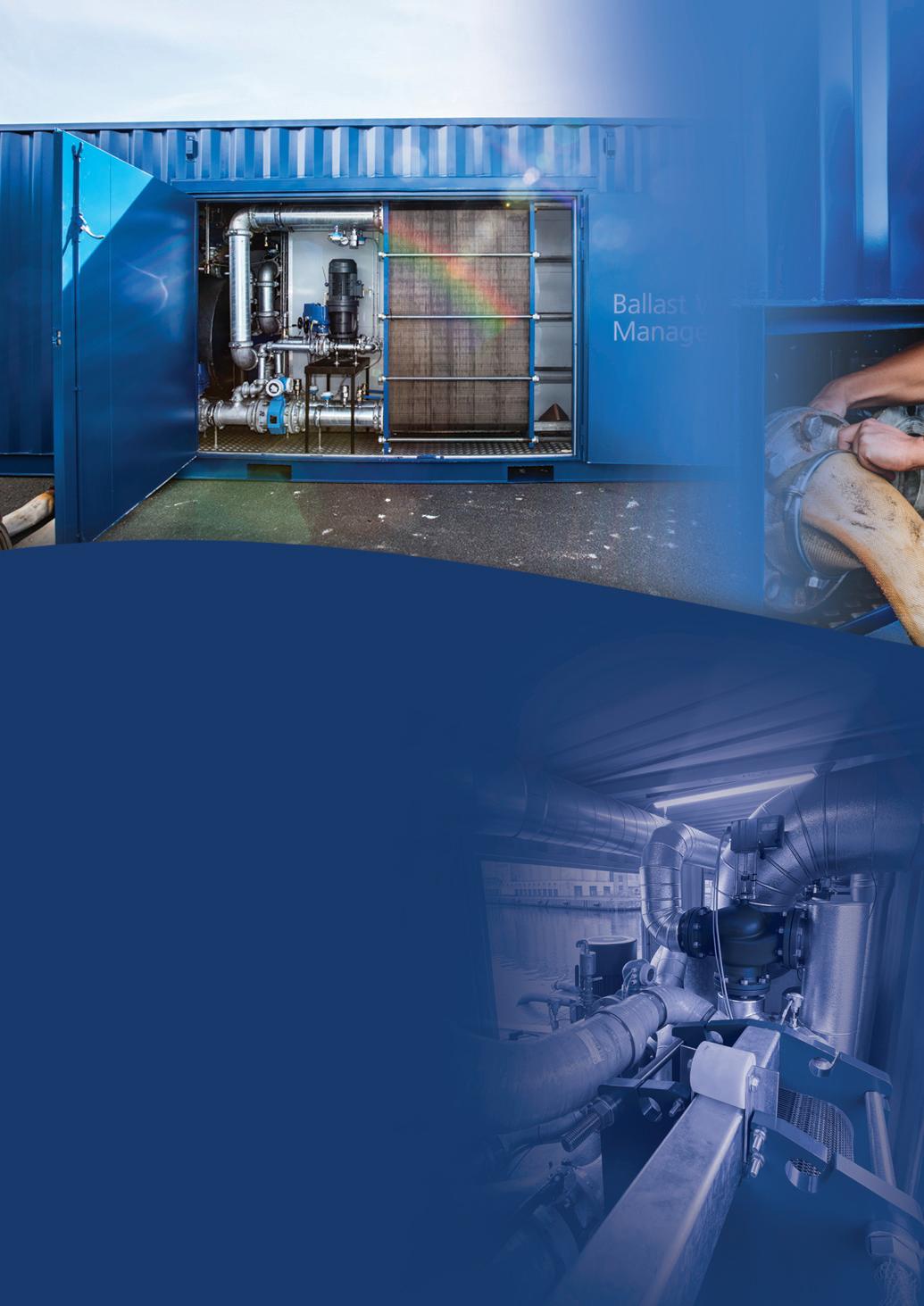
for vessels to live up to USCG discharge criteria in ballast water, we see increased demand for ballast water reception services. Bawat is ideally suited to serve this market.”
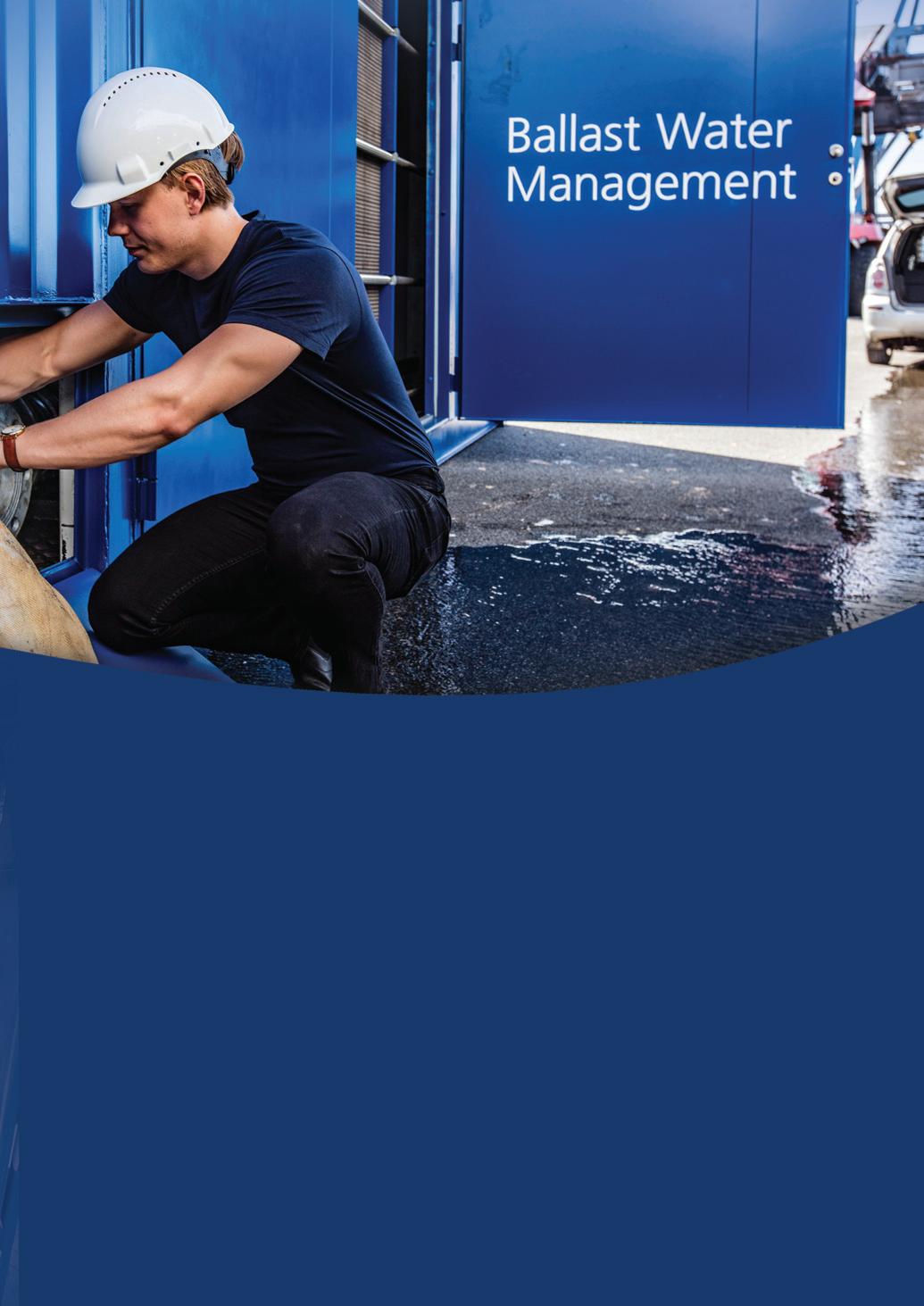
Mr Olsson raised the point that there has been high focus on decreasing the amount of greenhouse gases from engines, while preventing the invisible threat from invasive species from ballast water has not had the same focus. Flag and port authorities should step up and do more frequent inspections on the vessels to determine whether the ballast water systems are working or not, and that can only be done by testing the treated ballast water.
There are large fleets globally that are yet to install or retrofit a ballast water
system, Mr Olsson stressed: “According to industry reports, of those systems that are already in place, at least a third are likely to be operationally deficient or have already failed the ballast water convention’s discharge criteria. So there needs to be a more rigorous approach and fuller audit of these systems.”
Mr Olsson highlighted how Bawat’s focus is gradually moving towards the new build space: retrofits will however, continue in the years to come as well. “We are building relations worldwide, as well as developing our BaaS as it will become a growing market in which reception services will turn into a global need once the IMO Convention is fully implemented,” he concluded.
